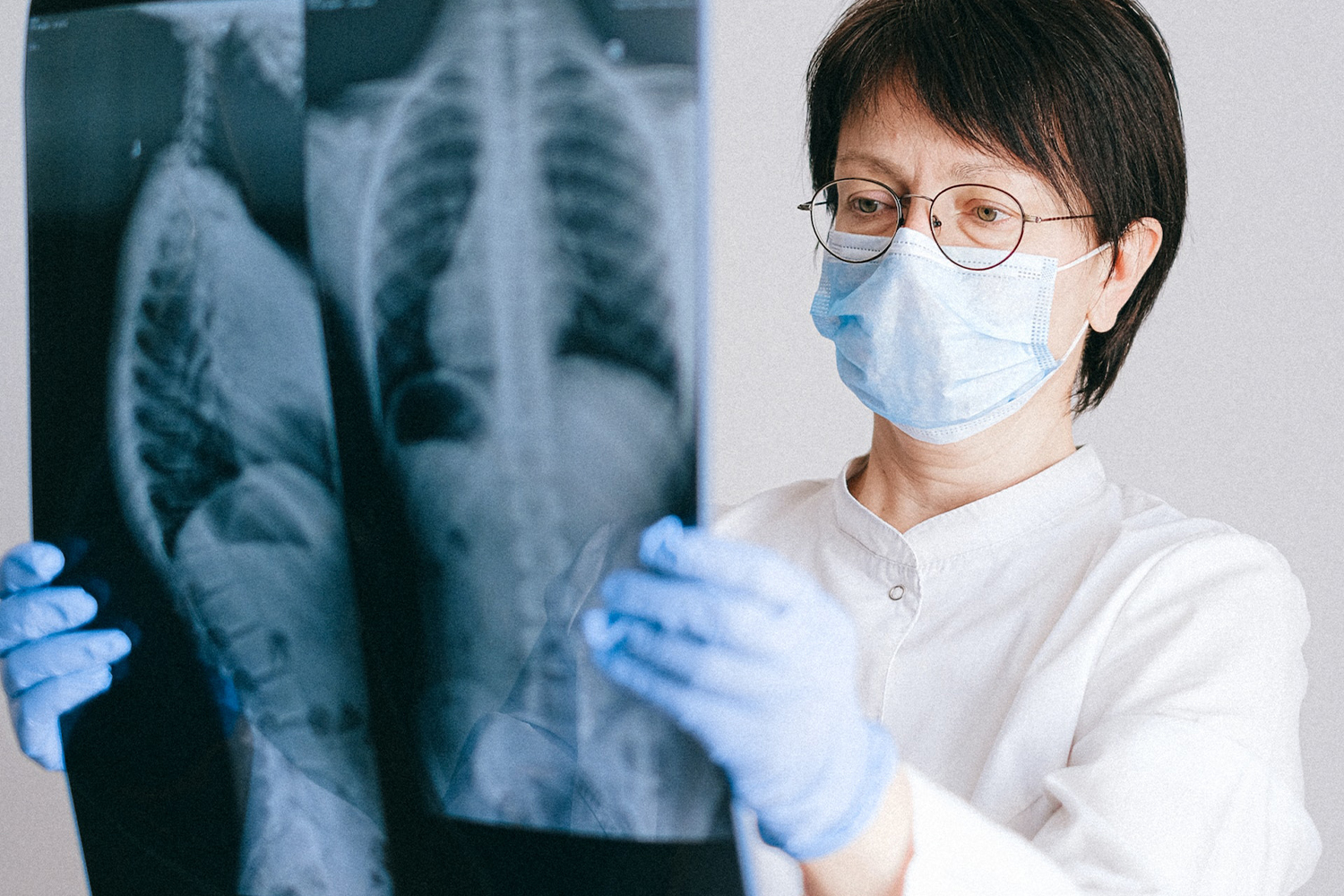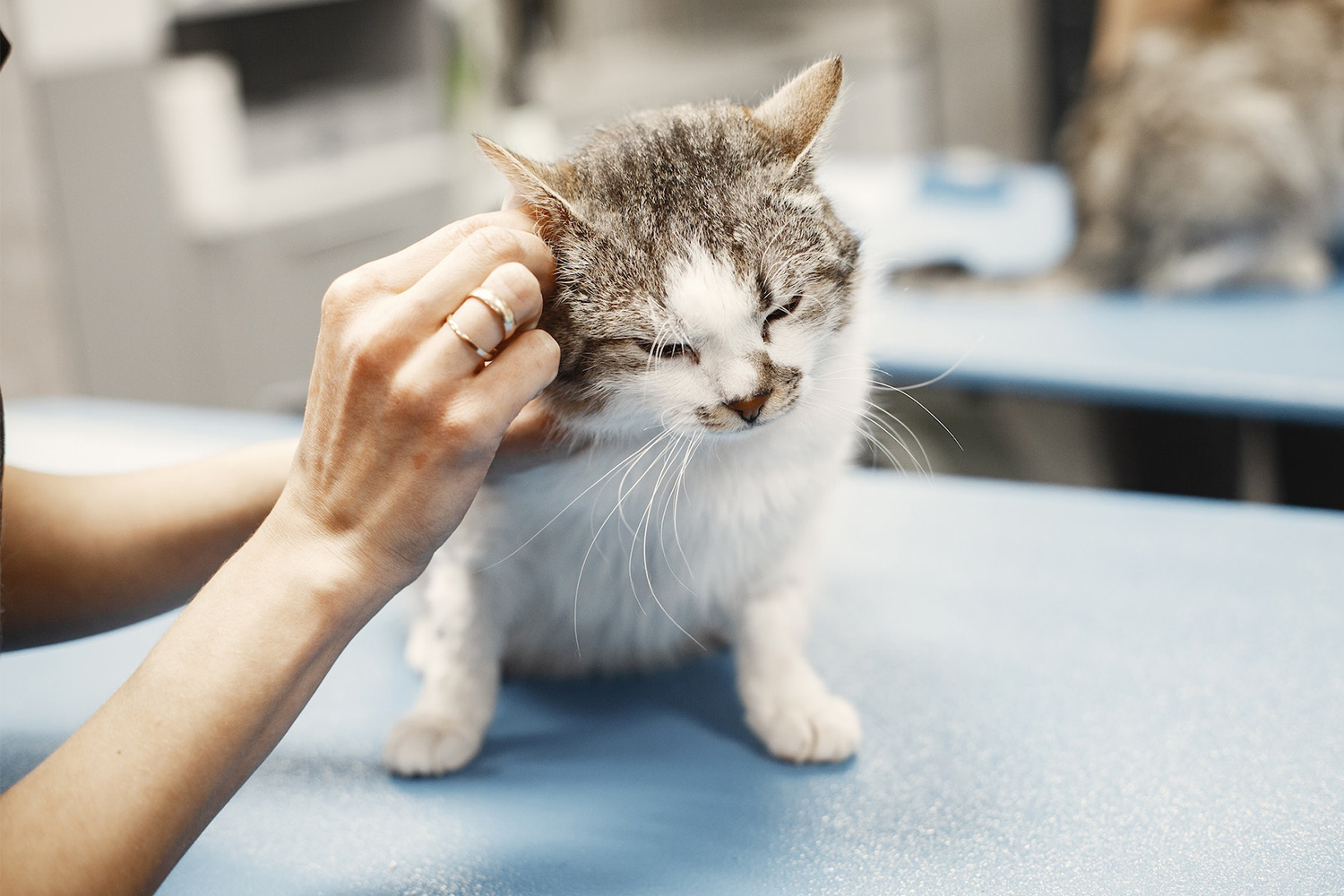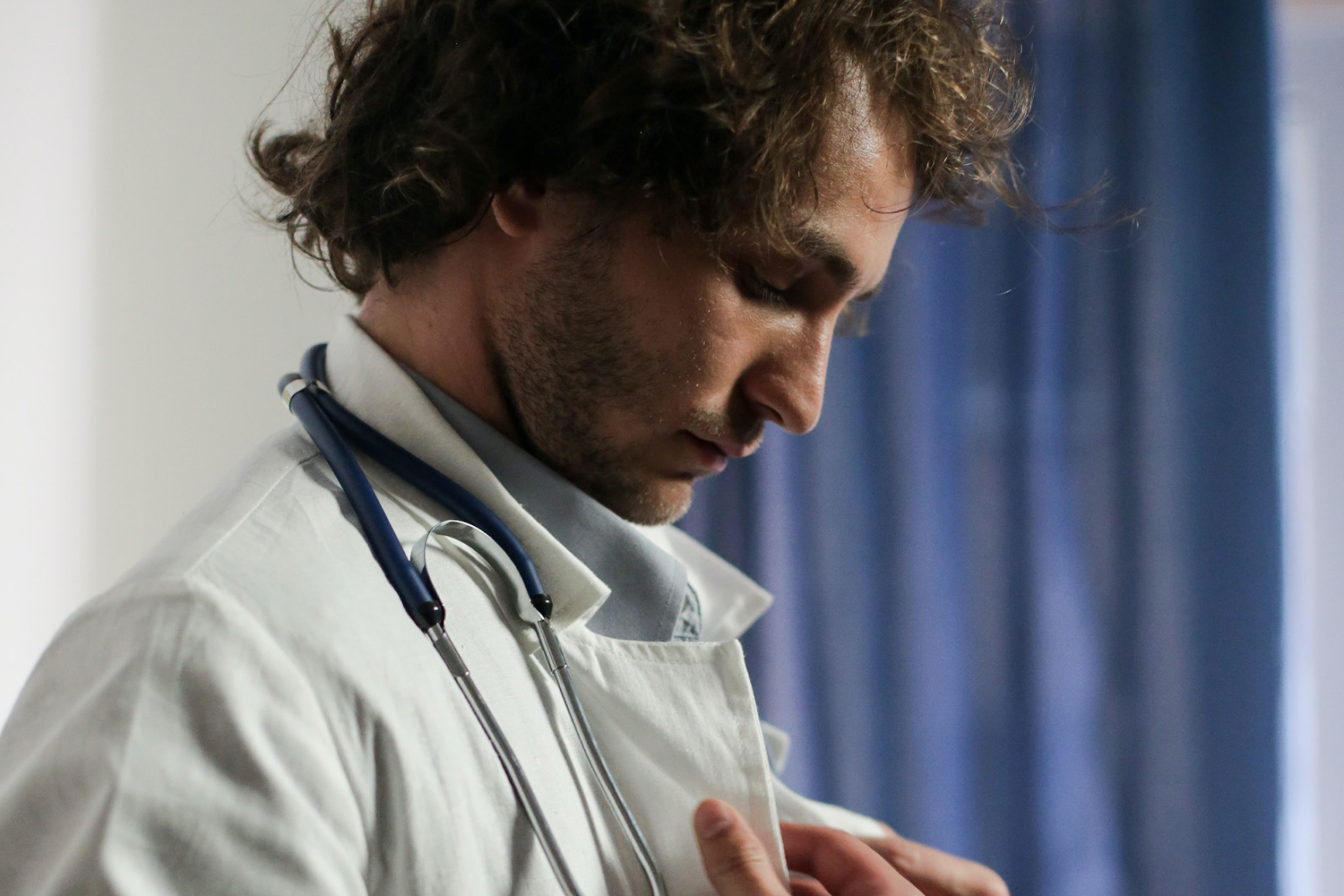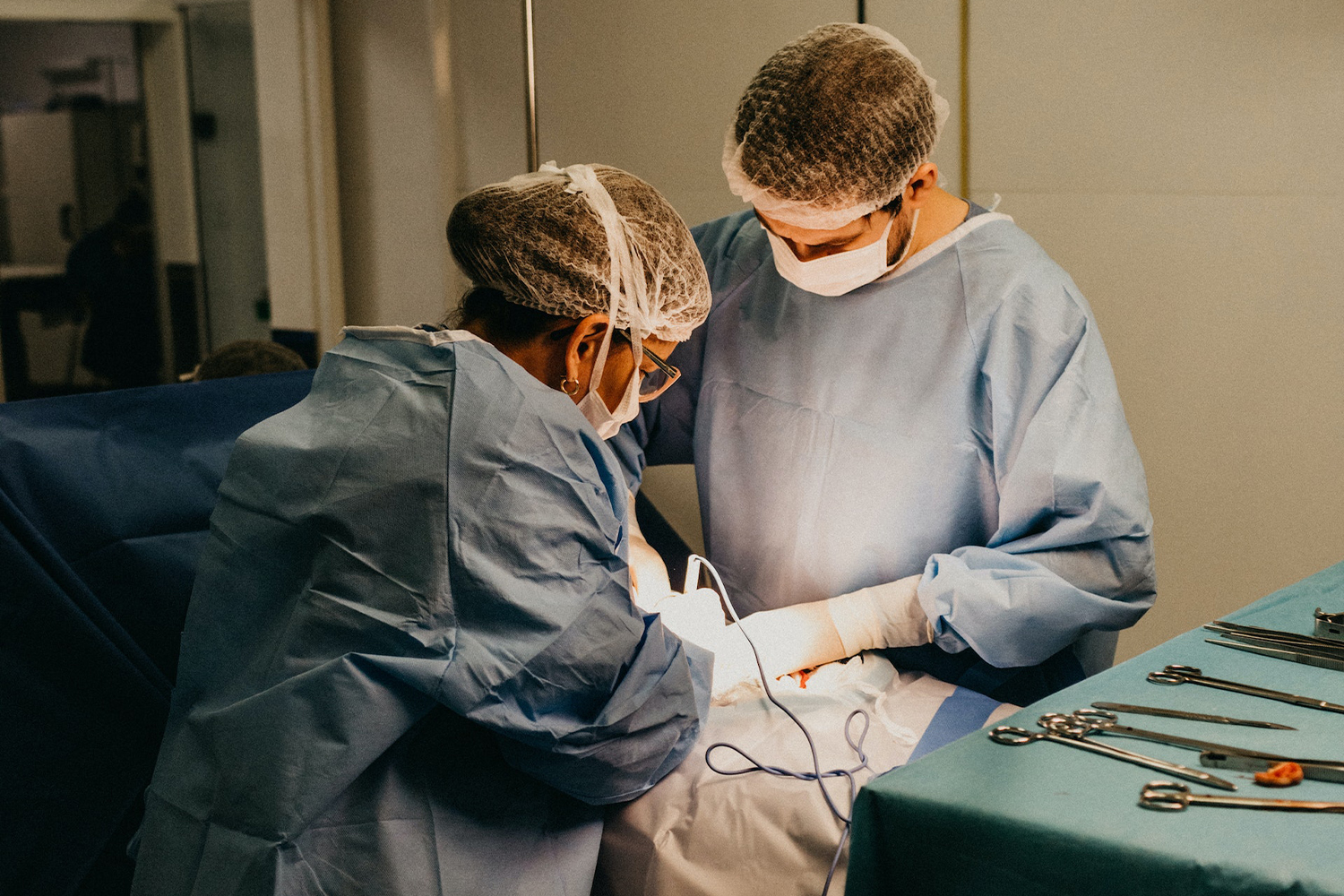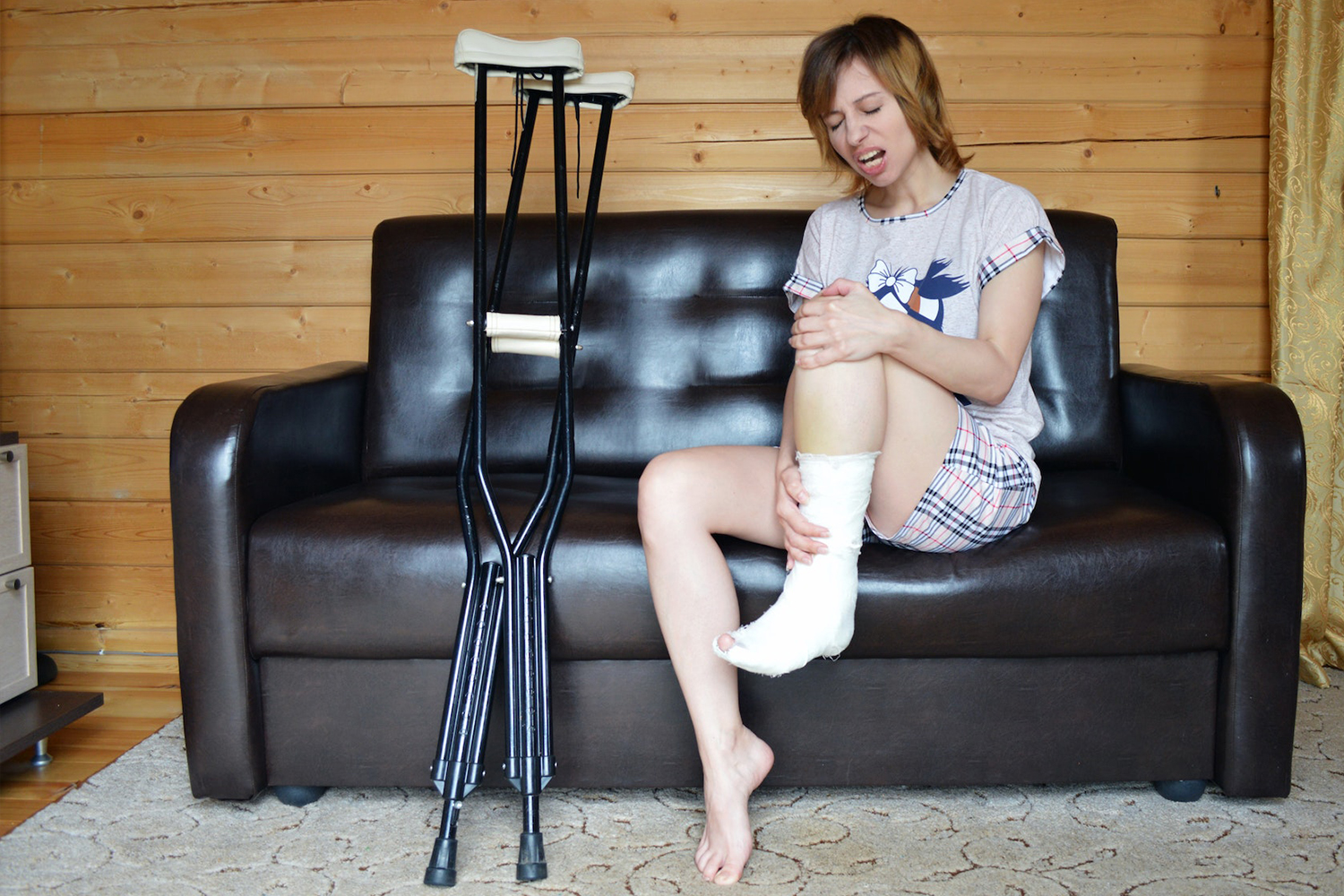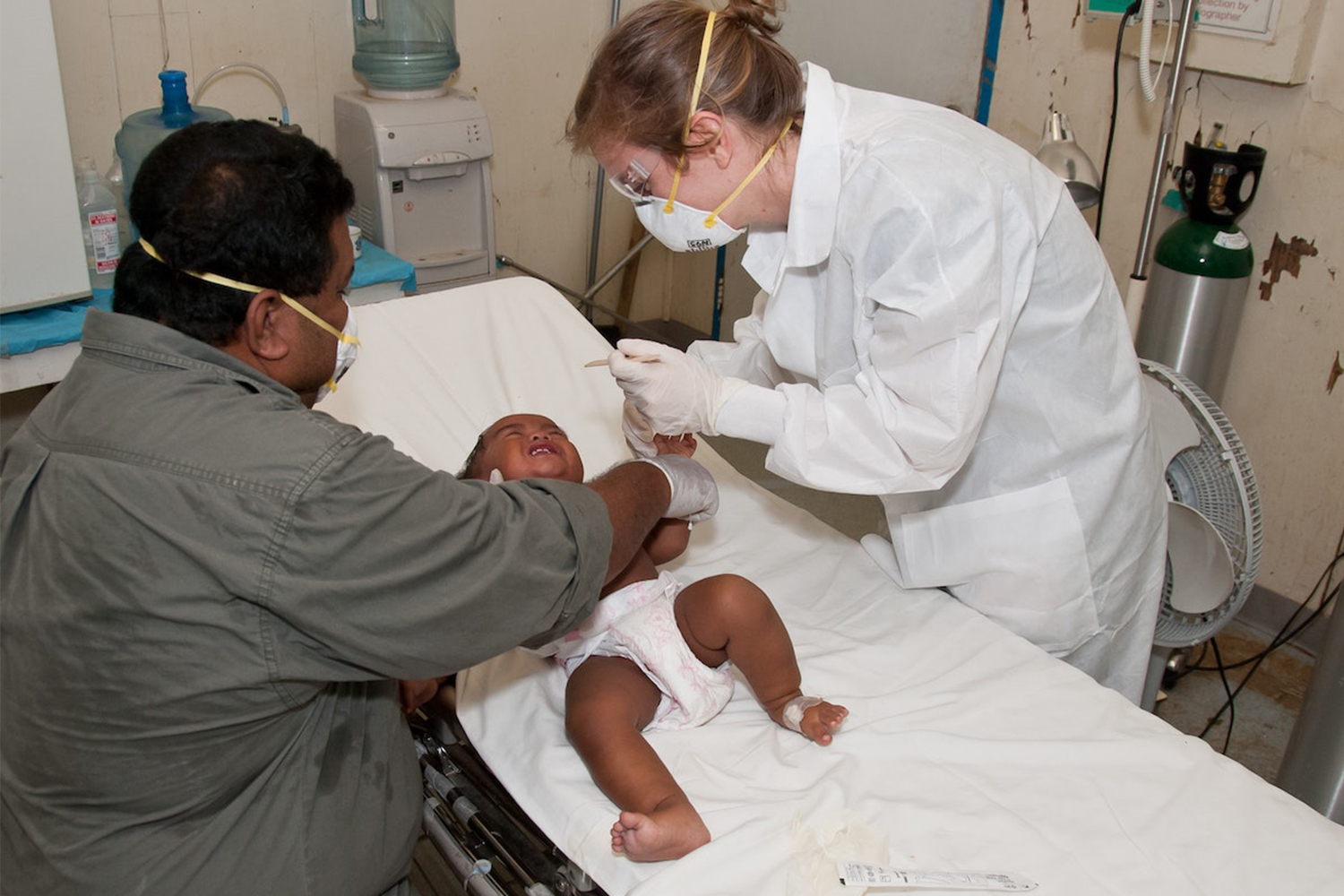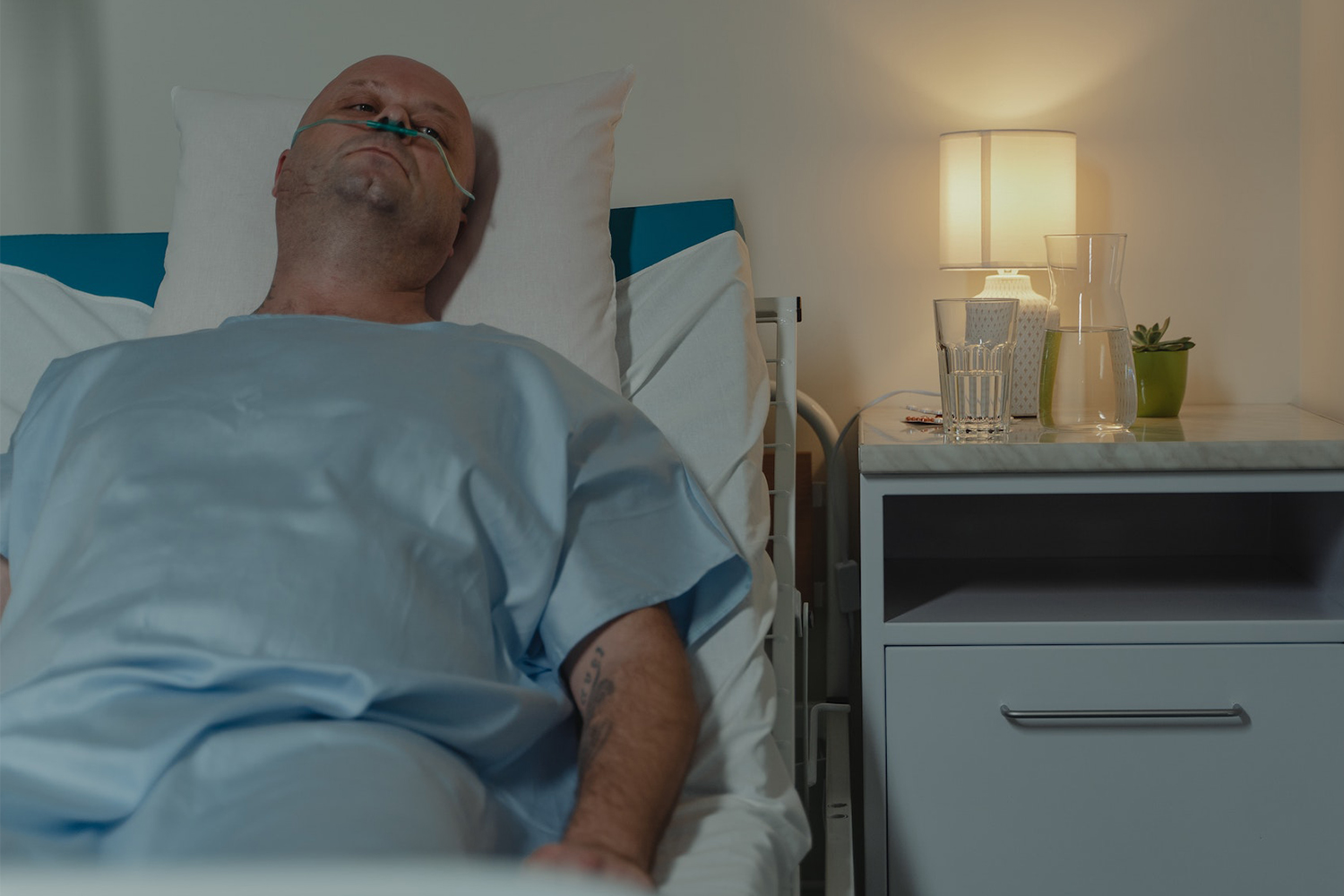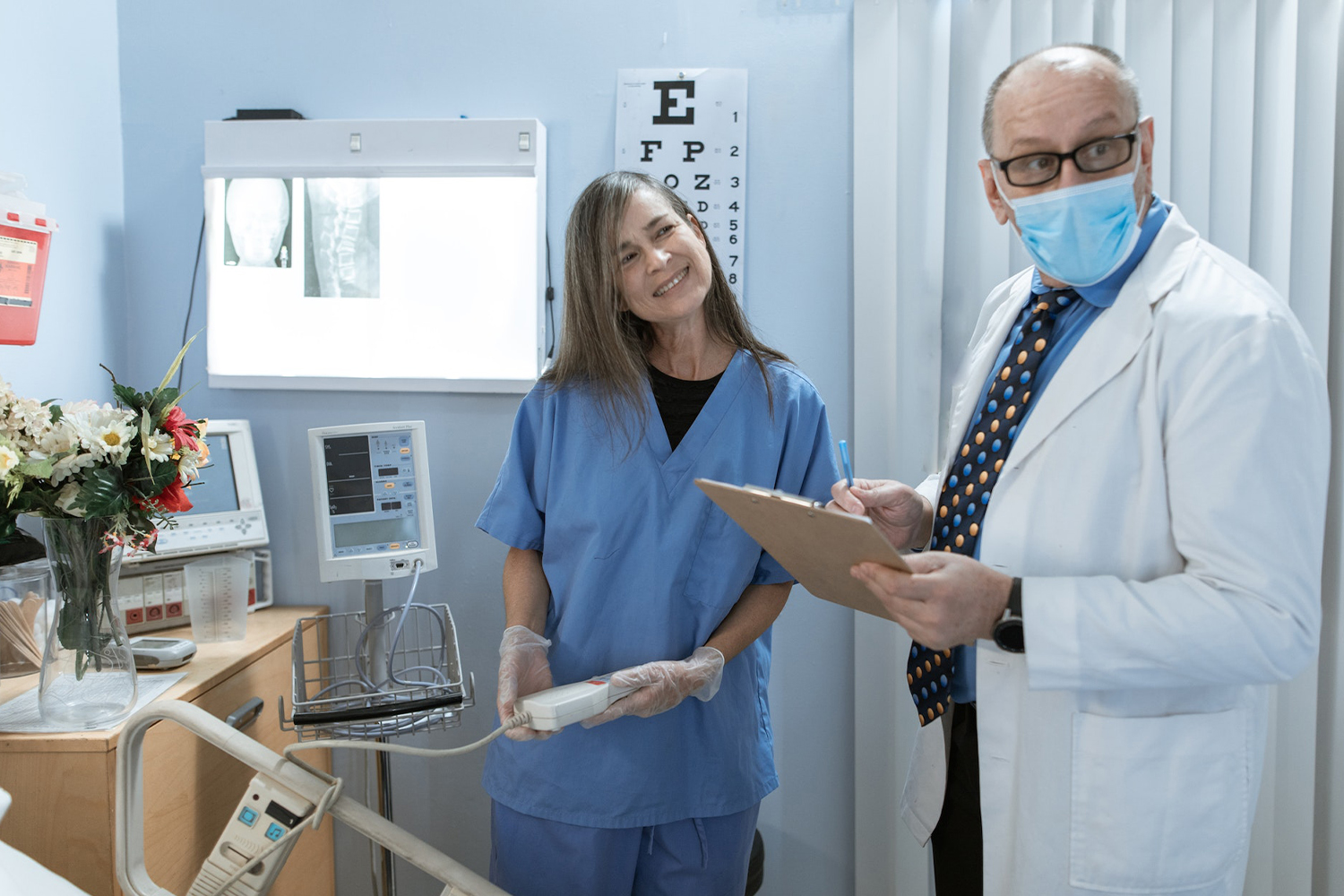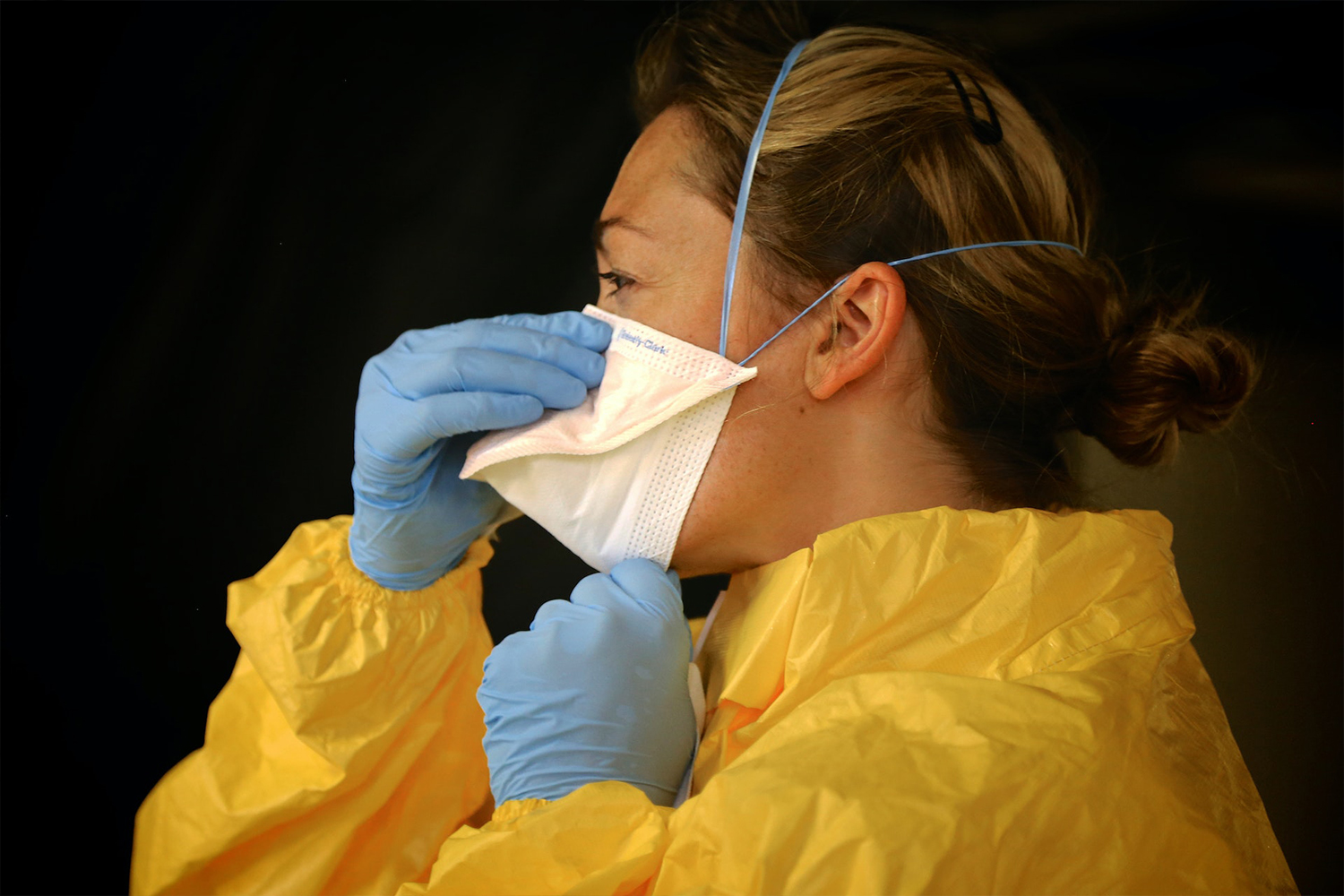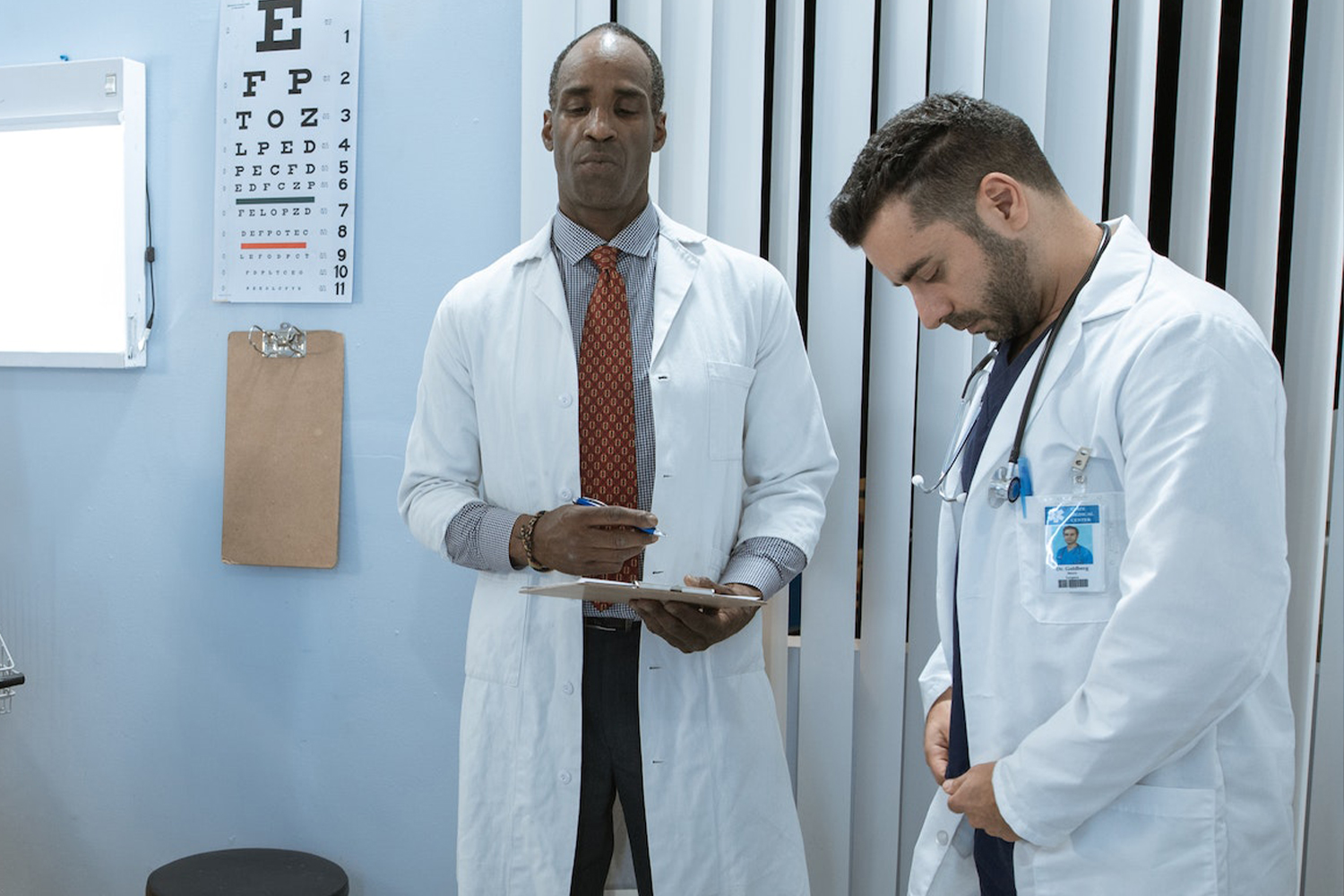If the medical shows on TV have it right, working in a hospital is like going on a single’s cruise. In reality, however, there’s a lot less dating and a lot more disagreement. Buckle up, because these nurses are ready to tell all.
1. He Lost Three Days
Most of the mistakes I have corrected have been about dosages. One doctor ordered a common dose of a nerve medication, but when he wrote the name on the medicine he wrote down the name of a drug that was similar but not the same.
It would have been fine except that the one he wrote down was much stronger than the one he meant to write down. The nurse—not me—who transcribed the order gave the medication, and then caught the error. The elderly patient slept for three days!
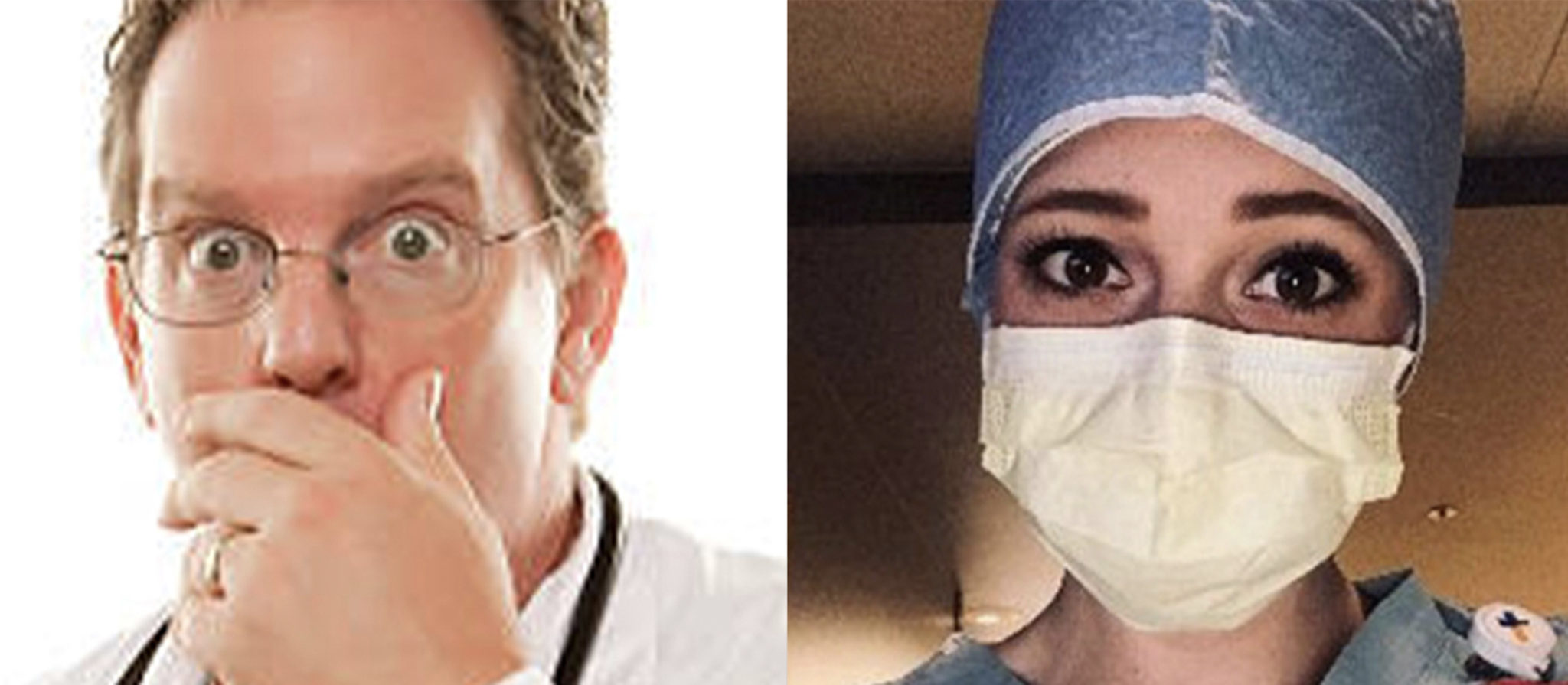
2. He Made Her Feel Better
Once, I argued for ten minutes with a resident, insisting that he order an abdominal x-ray on a patient. He finally relented, and when the secretary asked him what she needed to write under the reason for the x-ray—so the radiologist would know what to look for—he told her to write: “To make the nurse feel better".
Well, the patient felt better an hour later when they were wheeling him into emergency surgery once that x-ray revealed a ruptured bladder spilling urine into his belly.
3. She Has A List
I have been on various “watch" committees in which physicians were sent letters of intent to take action. These letters could be for reasons such as: bringing nonsterile personal items into the operating room, failure to mark the correct limb for surgery, failure to participate in or obstruct patient time out, major surgical infections from sloppy surgery, disruptive or abusive physicians, and my personal favorite: practicing medicine while under the influence.
4. It Was A Good Catch
An ER staff called up a report on a new patient. She had fallen hitting a sink with her nose and forehead hard enough to break her glasses. I asked if there were any fractures or neurological deficits. ER said that neither one had been done. I suggested she get the doctor in gear and do those. Yes, I used that phrase. What she said next made my blood run cold.
She told me that she was the doctor. I tried but I knew it was useless to apologize. I just knew I was in serious trouble. An hour or so later, that doctor called and said that they not only found several fractures but also evidence of a brain injury and lifted her to a major hospital. The doctor said, "Good catch," and I got a commendation for it.
5. She Had To Yell
I have caught several mistakes, but most are errors in doctor's orders and you just call the doctor to “clarify” them. Mostly they don’t like it but will change it. If they didn’t, I would refuse to give it. I once had to yell at a doctor who was trying to intubate a seizing child. He didn’t like it and didn’t like me.
All we needed was an IV line but he wanted to do an intubation. I had to give Valium rectally and the baby settled down. In the end, the child was okay.
6. Allergy? What Allergy?
I once had a doctor order medication for a patient. I took the order by telephone, then looked at the patient’s chart, and my jaw dropped. The patient indicated she was allergic to that medication. I called the doctor back, informing him that the drug he ordered, the patient was allergic to.
The doctor swore at me—he was known for it—and ordered me to give it to the patient anyway. He said the patient didn’t know what she was talking about. At that point, I called the evening nursing supervisor. I explained to her what the doctor was ordering and that the patient was allergic to it.
The nursing supervisor called the doctor. She told him that he had to come to the facility, write the order in his own handwriting, then administer the medication to the patient himself. The doctor’s nurse called back a few minutes later and ordered a different, but equally effective, medication.
Doctors really are pompous sometimes. I know. I’m the son of two of them.
7. What’s A Little Bacteria?
I was a nursing student at the time and working in the emergency room. An unfortunate elderly woman came in with sepsis—an extreme response to an infection. They were working her up, and I had been assigned to shadow this RN that evening.
Orders were to put in a foley catheter as the woman was very sick and having multiple issues. This nurse dropped the catheter on the floor and proceeded to pick it up from the floor with her sterile gloves on. I had another catheter kit and was starting to open it for her. What the nurse did next horrified me.
Instead of discarding it, she inserted the dirty cath into the woman. Fearful, I asked her what she was doing. Her answer was so terrifying—I will never forget it. She said: “She’s septic already, what’s a few more bacteria in there? They will give her a ton of medication, whatever is in her will be taken care of".
I immediately went to the director of the ED. The nurse was questioned and fired.
8. He Left It In There
There have been many mistakes that I have noticed over the years. From dangerous prescribing due to allergies or interactions, to attempting to get consent for surgery from the wrong patient.
Once, on nights in intensive care, my colleague and I noticed that a young patient who was sedated, paralyzed, and being mechanically ventilated, had higher inflation pressures than should have been the case. He also had reduced air entry to his left lung and his chest was not rising equally.
We notified the on-call doctor, a Senior House Officer, who decided that the patient was fine as his blood gasses and vital signs were acceptable. We persuaded him to order a chest X-ray—and I made a disturbing discovery. I could see a lozenge-shaped object in the left bronchus.
The doctor denied this and claimed it was an “artifact," and went back to bed. We were very unhappy about this so I elected to—and this was not within my job description—use a flexible bronchoscope to have a look. My colleague assisted and soon I could clearly see a black rubber object in the bronchus.
As I stood up, I was surprised to see the chief doctor standing next to me. I expected to get reamed out for my actions but he asked me what I could see and then took a look. A few minutes later a rigid bronchoscope was used to extract the rubber from a mouth gag. That was what was causing the problem.
The patient's condition immediately stabilized with inflation pressures exactly where they were expected to be. The junior doctor who committed the heinous error of ignoring more experienced nurses was made to write a paper about the incident. It was subsequently published in the Lancet.
My colleague and I were described as “alert nurses”.
9. It Was Way Too Much
I took a report one night for a patient who had come in earlier in the day. I did my assessment and at 22:00, I was looking at the list of meds ordered for bedtime dosing and saw a blood pressure medication (Lisinopril). With my physical assessment of the patient, something just didn’t seem right.
120mg of this medication a day just seemed like a lot for the physical state this patient was in. Occasionally, people who are very sick will be on higher than usual doses of medications because their bodies are just worn out and not regulating body systems on their own.
This patient’s blood pressure was on the low side, but not low enough to hold the dose. So I looked up the patient’s medication list, something, which at my hospital, the doctor is supposed to do. Sure enough, the patient had been taking 30 mg extended release per day! Not 120 mg immediate release!
I casually double-checked with the patient. “Hey! I was just having look at what blood pressure medication you were taking, and it looks like it has been changed recently—a big fat lie—before I call the doctor, can you tell me what dose you take? The patient says, “Yeah! I take 30 mg extended release in the morning”.
I asked him if he took a nighttime dose. The patient said no, just the morning dose. I played it cool but inside I was freaking out. I was about to give the patient twice his regular dose, which he had already had for the day, and it would have been immediate release!
He was then going to go to sleep, so he could have had complications that would not have been noticeable asleep as they would have been if he was awake during the day. I called the doctor and explained the problem.
I got an order for the correct dose, and an additional order to monitor the patient closely as he had already technically been overdosed, and explained what had happened to the patient.

History's most fascinating stories and darkest secrets, delivered to your inbox daily.
10. She Didn’t Follow Orders
The doctor only came once a week, so it was more or less the mistake of others. We had two separate women come into the hospice a year or two apart from each other. Both were completely unresponsive and were nothing by mouth (NPO) for obvious reasons.
After a few days, both women eventually started becoming a bit more alert, opening their eyes, moaning, etc. Each night, when I would do my rounds and take the patient’s vitals, I could clearly hear their bowel sounds. I mentioned to the nurses that I could hear them, and maybe we can start trying to give them some thickened water or apple sauce.
An order was put in for a swallow test and came back the same…nothing by mouth. I couldn't bear going into these ladies' rooms night after night, watching them slowly wither away while hearing their stomachs loudly growling. I did something I could have lost my license for.
I got some water and put some thickening in it, raised the head of the bed and gave them water—just a tiny bit at a time, and they took it with no problem. I told the nurse what I had done in both instances, and she took the blame and said it was her idea to try some water.
Long story short, that thick water turned to pudding, then applesauce, then yogurt, and finally real food. Both of those ladies walked out of that hospice alive and well. One of the ladies had actually come back about two years later. Thankfully, it wasn't for her—she was doing quite well—but unfortunately, she was there for her husband who ended up passing before her.
Before anyone gets upset, yes, I knew there was a chance for aspiration, but something in my gut kept telling me I had to try. There were numerous times we had patients that came in NPO but had zero problems swallowing, and that was found out by family members who would sneak drinks and food.
Usually, when it said they were NPO, I'd leave it as is, but when I'm performing oral care and the patient is trying to suck every last drop of water like they're dying of thirst, I can't just sit by. It's not who I am.
11. Thanks, But No Thanks
There was once a patient who complained of an intractable headache for two days and the doctor was ruling out viral meningitis. But, when I assessed the patient, there was no nuchal rigidity. No sensitivity to light and a headache that would not dissipate. This man had a CT down in the ER that was negative. So they were doing a spinal tap in the morning to rule out meningitis.
I called the doctor several times to say that he should order an MRI. He flat out told me no there was no need because the CT was negative. I reminded him that was the gold standard to rule out a stroke.
Come 5 pm, I made a final plea and said that I couldn’t order an MRI, but what I could do is document how many times I pleaded with him to order an MRI just to make sure the patient wasn’t having a stroke. So he caved and ordered one.
Radiology called me in 10 minutes and told me to get the patient to ICU because he had a brain bleed. The doctor never thanked me, never apologized, never said “You were right,” but it wasn’t the first and wasn’t the last.
12. She Was A Heroine
When I was filling in working in an adult primary care clinic, a patient came in with what was thought to be a sinus infection. The doctor treated the patient with antibiotics and sent him on his way.
Two days later, he called and said his symptoms were much worse. The doctor wouldn't even see him. He told me to tell him to just keep taking the antibiotics.
On the fourth day, he came in, and just looking at him I knew something was badly wrong. This had neurological indications: this was no sinus infection. In fact, I was convinced he had had or was in the process of having a stroke. She still refused to see him, she said her day was too busy to fit him in.
I put him in an exam room anyway and sought out the pediatrician—the doctor I usually worked with—to come keep an eye on him while I called an ambulance and got everyone else on board with what was happening. It turns out, he had Bell's palsy. If he had gone another day or two, he wouldn't have survived.
He now suffers permanent hearing loss in his right ear and some neurological damage involving his tongue when speaking, but he's happy he's alive. The doctor made a big mistake by refusing to see this man, despite my insistence. He could have lost his life, and for what? She didn't want to miss the show Lost that evening?
She kept touting me as a heroine. I was just mad that she couldn't do the right thing for our patient. However, all that matters is that man is alive and well.
13. He Didn’t Listen
This was quite a while ago on the evening shift in a suburban emergency room. An ambulance brought a man in his 30s after a motor vehicle accident. The man was totally alert, had no obvious injuries, but some vague complaints of pain in his left rib area. He had abrasions across his chest that were obviously from his seatbelt.
We had a new ER physician—new to our hospital, with a newly completed ER residency, and was working as an attending doctor. The doctor examined the patient, questioned how his blood pressure was, and ordered some labs . This was all the expected protocol.
After about an hour the patient’s blood pressure was dropping and his pulse was rising but not by any alarming amounts. He was also complaining of increasing tenderness in his left rib area. The doctor rechecked him and stated we could discharge him. The patient’s color didn’t look right to me, so I didn’t want to send him home.
I told the ER doctor of my concerns. His color looked off, his vital signs were slightly unstable, and his pain was getting a little worse. The doctor became very irate and said he had checked him and he was fine. The labs were fine and I was being ridiculous. I attempted to tell him the basis of my concern but he brushed me off again.
I didn’t argue any further but made my way to our surgery area where I had seen one of our trauma surgeons earlier. Fortunately, the trauma surgeon was still there, and I told him about the patient and my concerns. Of course, I was thinking, is this really worth losing my job over?
The surgeon went directly into the patient’s room, examined him, then asked me to call over to surgery and notify them he would be needing a surgery team shortly. He suspected, as I had, that the patient had injured his spleen. Needless to say, the ER physician went ballistic when he saw the surgeon with the patient.
He began screaming at me and of course, promised he would have my job. I told him it didn’t pay well enough for what we had to deal with. I didn’t think he’d want it. This is commonly called adding fuel to the fire! The surgeon came back after he was finished and told the ER doctor that the patient had a lacerated liver and ruptured spleen and had he gone home he would be dead.
He then said that the next nurse that tells him something is wrong: listen to her! The ER doctor didn’t stay with us long. I’m sure he did learn, though. We all had to trust each other when working in that environment.
14. She Wanted A Second Opinion
My mom was a nurse all her life, back when the only nursing certificate was RN. She trained at Hopkins. I believe she said she was still a student at that point.
The doctor had left after checking on this one patient, saying she was fine. But something did not look right to my mother, and it – whatever “it” was, I don’t know—kept getting worse. No one would listen to her, not even the other nurses.
She finally ran out into the hall, looking for another doctor she had seen on the floor recently. She found him, told him she thought something was wrong and asked if he could come to look at the patient. If he asked any questions, it was while he was following her to the room. When he saw the patient, he sprang into action.
I don’t know what was wrong, but he saw she was dying. Whatever it was, he fixed it and the patient was fine. The doctor thanked my mother. He may not have known she was just a student, but he had to know, by her apparent age, that she wasn’t very senior in the department.
My mother told me this story because I had told her who my new doctor was. She said, “Oh, I know him, he’s the one who saved that patient,” and told me. “But he probably won’t even remember it". I told the doctor the next time I saw him and he said, “Oh, you don’t forget things like that".
He remembered it very clearly and said that had my mother not gotten him right away, the patient wouldn’t have survived. Imagine that. Your doctor remembering your mother because of something that happened over 50 years ago.
15. Not What She Was Expecting
Early on, while I was still doing my internship as a licensed veterinary technician, I found a tumor that the vet missed on exam, and it ended up needing to be biopsied. It was malignant, so glad we caught it.
Years later, in another situation—and this happened at a shelter where I was the primary anesthetist—a vet made a fatal mistake. She was a very good vet, by the way, and a super compassionate person.
In a nutshell: She quickly palpated the abdomen of a new intake—a female cat—announced that the cat had cancer and promptly euthanized her. Afterward, she cut her open for a necropsy and found the cat was pregnant, nothing more.
16. She Was Double Dosed
I had a new doctor with little experience come in to round on her patient. She was asking me if the patient ever got out of bed or did her daily hygiene for the day. It wasn’t my patient or she would have been up.
Anyway, the doctor said she couldn’t understand for her age why she was such a slug (a slug is medical talk for a patient that just wants to lay in bed all day). This patient was in her late 40s. So, I started looking at her medication list. Seems she was on psychiatric medications.
The dose of one was double the average suggested dose plus she was getting it twice a day. In conjunction with that, she was receiving another psych drug with the same indication. It was a normal dose. In addition, she was being given anti-anxiety meds.
I suggested the doctor put the one drug to its suggested dose and discontinue the one that was already treating the same thing as the first one. I told her to make the anti-anxiety drug as needed instead of scheduled. The doctor was a bit afraid because this is what her psychiatrist had her on.
I told the doctor to trust me. The next morning when I came in to round the patient, she was up in the room bathing herself and had been sitting up in the chair for meals. She was actually talking to the doctor. The doctor came out and asked me how I knew these things.
I told her it was because I had been studying psychiatric medication to know them before getting accepted into school to become a psychiatric nurse practitioner. So it wasn’t really her mistake, but she should have put it together.
17. Clicked The Wrong Click
I have been a nurse for 23 years this year. The one I always think of is a physician ordering Arixtra on a brand-new mom. Evidently, she had complained of itching and he meant to click Atarax in the computer. I knew there was no reason in her history for her to receive that type of medication (a blood thinner) so I called him to clarify the order.
He had the good grace to thank me for catching the error instead of bloviating about “questioning him”.
18. In The Wrong Way
A doctor at our ER who used to be a nurse—but tended to forget that fact—was treating a patient with a venereal infection with the standard IV Rocephin followed by two different antibiotics by mouth. In this instance, she actually wrote to give them it via rectal administration instead of by mouth.
I, of course, followed the doctor’s orders but thought it was weird. I then went to Dr Ralston and informed her that this man may file a complaint on her which was something I would do as a courtesy to the doctor so they could remember the details of the case.
As this patient’s case was an easy cut-and-dry one, she of course asked why he would complain. I informed her the patient wasn't happy when I gave his medications rectally. The doctor looked at me like I was off my rocker. I showed her the chart and she just crossed it out and wrote PO.
I remember telling her not to forget that nurses cover doctors as much as she needed to do for us.
19. No Insulation From Insulin
I recently caught a mistake…kind of. The doctors did the right thing, but this situation goes to show why, as a nurse, your gut is the most important tool and also this: Even if a patient hasn’t been out of the hospital long, you still need to listen to them.
I recently had a patient come in for an insulin order. Nothing strange at all, but something felt off as I went in. So, when I went to check and administer the medication, I asked the patient. He said he didn’t take any insulin at home, and told me it was a different color—meaning potentially a different type.
I made the decision at that point that I wasn’t comfortable giving him insulin. His blood sugar the next morning was perfect, despite not getting the insulin. The next day, I wasn’t on shift, but the next nurse also reported his blood sugars being low at lunch. Because of this, she withheld the lunchtime dose.
She said she’d spoken to the doctors, but they’d told her it was fine and to give it—she also said she wasn’t comfortable and asked me to chase it up. I went to the doctors. They showed me what he was discharged on a week ago—the same as he was written up for that day—and showed me his blood sugar levels in the hospital, which had been perfect.
I said I understood that, but something felt off because, despite missing multiple insulin doses, his blood sugars were perfect. Thankfully, his wife was in later. She had a much better understanding of his medications. She told me that his blood sugar kept going low at home, so she stopped giving it.
I went straight back to the doctors and updated them. We ended up canceling all his short-acting insulin and giving only the long-acting. We organized diabetes nurse education the next day. He also got to go home the next day, without any of the nurses causing any harm. I don’t want to say it was a mistake by the doctors.
They looked at his medications, looked at how appropriate they were, and made a judgment call based on that. The patient didn’t have enough understanding to correct their order. So I’m just very glad that I did listen to my gut, and trust something wasn’t right. Overdosing on insulin can kill someone.
But we all worked together to get to the right regime and treatment for this patient, and he was met with no harm.
20. No Thanks At All
An emergency room doctor placed a central line in an artery—it’s supposed to go into the vein. He then told me it was fine to use before x-ray confirmation. I noticed it was in the artery and said, "Hey, I think you want to check placement because the central line blood has a pile". The doctor for sure thought I was stupid.
Sure enough, it was placed in the artery and not the vein. I didn't get a thank you or anything. It was more like I’d ruined his day because he didn't put it in the right place. Had I not paid attention and not used my critical thinking skills, we could have ended that person’s life right then and there. Instead, I saved that person!
21. It Was A Bloodbath
So, we were mid-cesarean section and the patient began hemorrhaging. The two surgeons were frantically trying to stop the bleeding, and it was ultimately getting under control.
The anesthesiologist was giving the patient a fluid bolus through her IV—which is a lot of fluid at once to compensate for the blood loss—and the surgeon ordered a stat CBC. This was a blood count to check if the patient needed transfusing.
The anesthesiologist began to draw the blood for the lab test directly upstream from the patient’s rapidly infusing IV. This isn’t rocket science. Had I allowed him to continue, there’s no telling how many units of blood this poor gal would have been transfused because of the dilution of the sample.
I simply said: “Please don’t draw the blood from that side, with her IV running". The anesthesiologist continued on…so I spoke louder and made eye contact with the surgeon who backed me up. The anesthesiologist threw the tourniquet at me and snarled, “Fine! You draw the blood!”
I shrugged, said “sure thing," and drew the blood from the proper arm. She didn’t even need a single unit of blood transfused.
22. She Walked Gently
Doctors are very well-educated and are generally very bright. As such, they do not often make mistakes. I have found my fair share. The rules for working with people who have made mistakes also works with doctors. First, allow the other person to save face.
They are human and as humans we sometimes make mistakes. There is no reason to also wound their dignity. Try to draw attention to the mistake indirectly. Doctors are usually willing to teach those who are seeking to learn.
Telling the doctor that you don’t understand the plan of care and asking for more information can be a way to draw attention to a mistake or to learn. You might find that with the doctor’s advanced knowledge that there is a reason for the order that you just did not understand.
A doctor who I very much like and respect was rounding with a pair of residents and ordered a two-liter fluid bolus on my patient who had a rapid heart rate of 115 bpm. I had just come on shift and received a report, but I needed to gather more information before deciding to carry out the order.
On assessment, the patient had coarse-sounding crackles in the bases. His central venous pressure was 19 and his chest x-ray reading reported that he had vascular congestion. All of these are potential signs of fluid volume overload. I asked the doctor about these findings and asked if he still wanted the fluid bolus.
He canceled it and ordered Lasix instead.
23. It Was A Stimulating Experience
I was working in an ER that had just absorbed three emergency room doctors from a closing hospital. One of the new doctors quickly got a reputation for incompetent patient care. One night, I had a patient come in with a nosebleed that would not stop. His nose had been bleeding—like really bleeding—for four hours.
His blood pressure was extremely high, which is why his nose wouldn’t stop bleeding, so I reported that immediately to the MD. His response shocked me. The MD gave me the order to give the patient what amounted to a stimulant—you know, the kind that was going up people’s noses back at Studio 54! Remember, this was for a nosebleed.
I repeated the blood pressure results and reminded him that the stimulant could kill the patient. He calmly replied, “He’s here to be treated for a nosebleed”. I rushed over to the Charge Nurse’s cubby, let her know what was up, and asked her to assume care of my patient, so I could document the event first-hand.
Everyone but the MD knew he was under surveillance. I then documented my portion of the event, because nothing exists in healthcare if it’s not in the computer. He was subsequently fired, and the patient was admitted for proper care. The system worked that day. Hooray!
24. Doctor Fesses Up
As an intern many years ago, I was called by a nurse in the ICU to insert an NG (nasogastric) tube at night so she could administer 10mg of Inderal (propranolol, a beta-blocker, then used to control heart rate). Nurses then were not authorized to insert NG tubes.
I was visiting my girlfriend nearby, and I shamefully didn’t want to walk over to the ICU, so I told her what she should do. I told her to just give the 10mg through IV. This could have been disastrous since IV doses are much lower than NG doses. Fortunately, she politely refused.
Not for the last time a nurse saved me and prevented patient harm. She should have reported me, but she did not, maybe because I was not rude to her. As a doctor, you quickly learn—or should learn—that nurses are your best ally.
25. He Prescribed From Bed
A patient's readings were off—I've forgotten the exact details—and her cardiologist was called. He answered and gave an order for an appropriate drug but an off dosage. She motioned for another nurse, after reconfirming with the doctor that was what he ordered, the other nurse got on the extension and verified that the doctor ordered exactly what he said.
There was some consultation between the floor nurses, a call to consult the ICU nurses and everyone agreed this was a dangerous idea. Why not call the pharmacy? They didn't have a 24-hour pharmacy but needed one.
There were two night supervisors that worked there: an excellent one and her relief, who was usually okay but not as strongly knowledgeable nor as confident as the full-time. Unfortunately, the relief was on. She told the nurse to give the medication as per the doctor’s orders. The nurse refused. The supervisor then gave the medication.
About 20 minutes after the phone call, the doctor called in a panic, and frantically said, “You didn't follow that order I gave, did you?" She replied, “I didn't, but my supervisor did". He gave an order to fix the mistake and said he'd be right in. He sat in front of the monitors, with the monitor technician, all night long.
The patient ended up being fine.
26. He Was A Monster
Quite a few years ago, I worked in a psych facility. I would describe one of the psychiatrists as quiet, poised, and subtly brutal. Everyone feared him. He caused patients to suffer. He lied about their treatment. He lied about their medications. He lied about their progress. He dispirited patients by telling them that they were hopeless.
I had to secretly prevent much of the harm he did to several patients. He reminded me of a shark, gliding silently through the waters, waiting to find something to shred. He was a monster. I can only hope that his outrages have caught up with him.
27. She Has Tough Skin
Let’s put it this way—we’re all human and make mistakes. I’ve caught errors: nurses, pharmacists, doctors, family members, nurses aids, and even myself have made.
We try to have a system, so errors are discovered prior to it ever reaching the patient and end up causing harm or possibly death. In all instances, I always handled myself professionally and ethically.
I once discovered someone’s cancer when the doctors thought he just had back pain, antibiotics that were labeled as nitroglycerin, wrong patients in wrong rooms, incorrect lab results, pap smears left for days in a room and never sent to a lab. But that was only the tip of the iceberg.
A doctor once called me and asked me to remove his note from the chart and shred it. I most certainly did not do this as that was against the law and I went through the proper channels.
Once I worked for a physician’s office where the doctor refused to call and notify a patient that her mammogram indicated she needed further testing to rule out cancer—it was highly likely it was cancer—because he could not locate her chart despite having the results of the test in his hands.
As nurses, we advocate and try to protect our patients and that means we have to have tough skin and to be able to go to bat for those who need us when they need us the most.
28. The Doctor Said Oops
I am not a nurse, but self-educated in layman's medicine and science. Several years ago, my daughter was in a terminal state with stage four cancer. Because she was bedridden, she developed horrible bedsores that became infected. The physician at the hospice prescribed antibiotics to treat the infection, but they seemed ineffective.
I have seen from past experience that an antibiotic should show some effectiveness within three days. I looked up the prescribed medicine and saw that the dosage was based on body weight. When I compared the amount she was given with her body weight, I made a startling revelation.
I determined that the dosage was half what she should have been given. When I told the doctor, he said: “Oops!”
29. Don’t Say Anything
When I was a nursing student, a doctor left an instrument inside of a gallbladder surgery patient. My teacher told me not to say anything, but the next day, my patient had a high fever with severe abdominal pain. So, I went to the nurse in charge to complain about what I saw. X-rays of the patient's abdomen were taken.
The patient was taken back to surgery to have the instrument removed. Antibiotics by IV were started and the patient eventually got better. The charge nurse and patients thanked me, but my teacher was still upset with me for saying something. I ended up changing teachers for my surgical rotation.
30. Teenage And Allergic
This was many years ago when doctors were still gods and I could lose my job for stepping over the line. While working on a surgical floor, a doctor prescribed a powerful painkiller to a teen, that was well over the normal dose. To make matters even worse, the patient was also identified as being allergic to the medication.
When I noticed it and called it to the attention of the attending doctor, he told me I was mistaken and said that the dose was not too much and the patient wasn’t allergic. At the time, I was working in a Catholic hospital and we still had nuns around.
One of them was walking by, and I asked for her to check the dosing and also go with me to check on the allergy—she was a nurse. She did check it all with me and confirmed my findings and she confronted the attending. I still wasn’t liked very much by the doctor or some others, however, I did what was right for the patient.
There are five rights of medication administration: Right Patient, Right Medication, Right Dose, Right Route, Right Time.
31. She Didn’t Need It
I had a doctor that was going to order some insulin when the patient was not diabetic. The new nurse had gone to prepare it without even looking at her chart. I had to step in because I had worked with the patient before and knew she wasn’t a diabetic. I took her blood sugar and it was 82.
I showed the doctor and explained that I knew the patient. He just said, “Oh well, cancel the insulin” without looking further into what her problem was. She passed on three days later. I was so glad she wasn’t my patient.
32. She Broke It Twice
I was a hospitalist nurse practitioner working with the orthopedic service at a level-one trauma center. We had a patient come in who had re-fractured her tibia. She had broken it several weeks earlier—I forget how—and it had been repaired with a plate and screws.
The patient had been discharged with crutches and strict instructions to put no weight on that leg. The plate was only there to hold the ends of the bone together and still, so they could heal.
It became evident that the patient, who was obese, was unable to support her weight on the crutches, and had been walking on the broken leg, causing the plate to break. This would require further surgery to remove the broken hardware and re-repair the break.
As I usually did, I reviewed the patient’s x-rays to see the original break and subsequent repair. I also found a set of films dating to two days before the patient was readmitted—and I noticed something odd. I saw that the plate had already cracked on one side of one of the screw holes. The plate was still intact, but failure was imminent.
Interestingly, the radiologist who read that film made no mention of the crack. This bothered me, because if someone had spotted the crack before the plate had failed, maybe we could have prevented the failure and readmission.
We might have been able to put the patient in a wheelchair while the bone was healing rather than having to rush in to deal with broken hardware. I showed the x-ray to another doctor and she said it looked like the plate was about to fail. I told her that it did fail, and we had to take the patient back to OR.
I also mentioned that the radiologist who read this film made no mention of the cracked plate. Her head snapped around and her eyes narrowed. She used the markup tool on the digital x-ray software to draw an arrow pointing to the crack. She then said that it would be going to the review committee.
I never heard anything more about it. I hope the radiologist in question didn’t lose his job—I doubt it—but I hope he learned and got better.
33. Sparing Him Humiliation
This happened in the days of paper charts. The admitting physician wrote some orders and slid the chart to me. I looked at the order then immediately stood up and walked around the counter to stand beside him. I opened the chart to his order, then flipped the page to show him a preceding order that made his order very much contraindicated.
I did not say a word. He muttered, “This is bad, very bad”. He corrected his order and thanked me. The nurses’ station was crowded, and I did not feel the need to call attention to the mistake. To me, we are part of a team.
34. Ten Times Too Much
I was working in the nursery and a baby was brought in in distress after a difficult delivery. The pediatrician was trying to intubate, and the baby was fighting the procedure. My supervisor was drawing up Ativan to administer per the MD’s orders.
She had figured the dose on a piece of paper on the desk and asked me to double-check it as she walked towards the baby. I glanced down and immediately thought it looked wrong. I stopped her and quickly refigured her math. She’d drawn up 10 times the correct dose.
She quickly checked my figures and had to waste 90% of her syringe contents.
35. She Got Berated
I had a resident with severe chronic obstructive pulmonary disease (COPD). She was on three Liters per minute of oxygen continuously. I came back Monday after my weekend off and saw that she had had a respiratory infection over the weekend and that her doctor and one of the RN supervisors had ordered her oxygen to be increased to 10 L/min.
I had questioned the order to my supervisor that night because too much oxygen for someone with COPD makes things worse, not better. Most doctors I've worked with don't like to go above five or six liters. The order was changed and the resident was okay.
The next shift, the RN that had taken the doctor’s order was in, and she came to my wing to talk to me. She yelled at and berated me in front of my colleagues, about how I dared to question her or the doctor's orders. She is an RN and I'm only an LPN and she knows more than I do.
Not only was it completely unprofessional, but it is literally my job and my license to question something that I even think may be wrong. The doctor who ordered it, well I always thought he was arrogant anyway, so it didn't really surprise me too much about him.
36. You’ve Got A What In Your What?
It wasn’t quite a life-threatening mistake, but it led to a series of errors that caused the patient unnecessary medication and inconvenience. We had a foreign doctor who was new.
He was making rounds, checking on patients and he asked how a patient felt, and the patient responded that he had a frog in his throat, it hurt to swallow, and that it was scratchy and sore. It was your run-of-the-mill viral symptoms with swollen lymph nodes.
The doctor examined his oral cavity, made some notations, and moved to the next room. I looked at the chart later to see that the doctor had prescribed Haldol, an anti-psychotic medication, and moved the patient to the psych unit, where he was locked in with several seriously ill psychiatric patients. It was only later that I realized the awful truth.
Not understanding the expression “there’s a frog in my throat” to mean he was hoarse, the doctor whose native language was not English assumed that the patient was hallucinating and mishandled his case.
37. They Left It Inside
This was in the early 90s, somewhere in Texas. It was an ICU post in the open heart unit. I was the night charge nurse. It is customary for the anesthesiologist to accompany the patient from the OR. The primary RN takes a quick but detailed report while the secondary RN helps settle the patient.
This involves connecting chest tubes and bottles to the wall suction, catheters and various monitoring modalities, and an assortment of cables to the monitor.
The first 15 minutes is hectic, as the patient would usually be on life support medication, attached to a ventilator and sometimes their heart is only beating because of an external cardiac pacemaker—otherwise, they would be flatlined. Their life is virtually dependent on the RN who is highly trained and proficient in this specialty.
This is also the time when a chest x-ray is done. The film is immediately brought back after processing, and the RN is trained to look for air or fluid in the thoracic cavity. They also look at the heart, trace any outstanding monitoring catheter or see if there are any “foreign bodies" or FOBs. This particular patient's chest x-ray showed a surgical clamp.
It seemingly appeared to be lying on top of her chest, but on inspection of the patient’s anterior and posterior chest, the said instrument was not visually located. We left the x-ray film on the view box. Thirty minutes later the surgeon arrived. I asked him about the chest film—and he turned white as a ghost.
He grabbed the film, picked up the phone and in less than five minutes the patient was wheeled back to the OR. Upon her return, the repeat chest film was clear of any FOB. The original x-ray—the one showing the clamp—was missing and the patient was transferred to the telemetry floor the next morning.
It was never ever mentioned again.
38. Oh The Mistakes!
Most of the mistakes I catch aren’t life-threatening, and many would result in nothing more onerous than an unnecessary delay, or, occasionally, an extra blood draw. Here are some examples:
“Dr. Something, did you want to order blood work with that IV order?”
“Did you hear that the patient asked for something for nausea?”
“Did you want me to draw that second troponin before taking the patient up to the floor?”
Most recently I had to ask this: “I see you put in an order for Decadron for the child with croup. Did you really want me to give it IV, or can I give it orally?"
It doesn’t happen all that often, but it’s part of my job to make sure that orders are correctly entered and processed, and that the doctor is aware of every problem that comes up. Likewise, the doctor will sometimes check with me, to make sure I’m aware of new orders.
39. He Was Confused
Years ago we had a patient that came into the hospital and was independent. He was there for his heart and received a very common and effective medication. Within hours, this man became confused and unable to care for himself.
An agency nurse that was filling in for the day, came and found that the medication has this unusual side effect. She discussed it with the doctors and within hours the man was independent again.
No one knows everything, the truly intelligent person will realize that and be willing to learn from others. Sadly, our culture in healthcare is too much about finding faults and lawsuits.
40. He Yelled And Screamed
I worked at a hospital years ago and one doctor there was particularly nasty. It got to the point where two nurses needed to listen in when he called in orders. One day he ordered insulin for a patient. There are several types of insulin, but he did not specify which one. I was sure he meant regular insulin, but he did not write it down.
I had to call him. I was direct and read him what he’d written. I asked for clarification. He yelled and screamed, but eventually, I got the proper order.
41. Times Seven
A resident went out for a scheduled appointment and came back with a progress note and some written order changes. One of the changes was for 800 mg of gabapentin. Now that’s a lot of gabapentin, period. This person, however, was only receiving 100 mg at the time and a sevenfold increase just didn’t seem like a wise choice.
He had been on 600 mg in the past, but it had been decreased after a hospital admission upwards of six to eight months prior. So I called the clinic and spoke to the assistant. I started telling her about wanting to clarify the order and asked if the doctor knew that the patient was currently on 100 mg?” This was followed by silence.
I continued: “I just thought I’d call and check before we potentially risk this guy's life”. She told me that her records said he was on 600 mg, and he says it isn’t working. So I explain what happened previously, agreeing that he is experiencing symptoms because 100 mg is nothing, and then ask if he came to the appointment with an envelope.
She said that he did. I remind her that we send an updated medication list every time, in that envelope, and to make sure the doctor opens it to look. I also told her that I would happily fax her a copy now. Needless to say, they decided not to increase him to 800 mg. And the resident was mad at me for not giving him his new pain meds.
42. Thanks, But No Thanks
One of our hospitalists ordered two units of packed red blood cells on a patient who was a Jehovah's Witness and had a directive on the front of her chart stating absolutely “no blood, blood products, or human tissue”. I double-checked with the patient because hey, you never know, maybe she changed her mind.
The patient reiterated that under no circumstances was she willing to accept a transfusion. The hospitalist was very unhappy as the patient's Hgb was in the 60s but that's how it goes sometimes.
43. It Was A Dramatic increase
There was a pulmonologist treating a patient with a blood clot with blood thinners. The pulmonologist was also responsible for ordering the medicine that flushed the IV port in his chest. Anyway, he mistakenly ordered 10 times the amount of medicine. That is 30,000 heparin instead of 3,000. This resulted in potentially catastrophic consequences.
I was a nurse for probably 10 years at this point and actually knew this doctor pretty well so I simply told him flat out: in person, face to face. I told no one else, although the pharmacy knew because they send the medications. Anyway, it was corrected ASAP which is the best way honestly.
The doctor told me that day that I could write any order I wanted, and he would co-sign it. It’s a good feeling to be trusted and be a patient’s main advocate.
44. She Writes It All Down
I did acute hemodialysis. A patient needed emergency dialysis and the doctor came in and inserted a subclavian dialysis line: these are different than IV subclavian lines. I prepared my machine but when I went to “hook up” the patient the blood was “pumping” back into the line.
I immediately stopped the procedure before there was any exchange and called the doctor. I reported to the doctor that the dialysis line was in the subclavian artery and not the vein. He came and corrected the mistake. Many nurses inform doctors of problems that could be fatal but these are your older more seasoned nurses that are not afraid to confront a physician.
If you are unsure of an order, call the doctor, and if they insist on you proceeding anyway with the order, call your supervisor, inform them, and let them confront the doctor. I always wrote everything down in my nurses notes as to what happened because, believe me, no one will back you in a court of law.
45. Lethal, No Matter What You Call It
I was working in a psychiatric ward at the time and the patient’s doctor wrote this order. The order read haloperidol 500 mg, four times a day, by mouth. I went to process the order and immediately noticed the magnified order of 500 mg. That was extremely high. I thought it probably should have been more like five to 10 mg.
The doctor was nearby, so I called him over. I knew I had to be careful with this doctor, so I just pointed to the order he had written and asked: “Does that say haloperidol?” To which the doctor replied, “Yes". I followed with, “Does that say haloperidol 500 mg?” To which he again replied, “Yes".
He then took the file and crossed out the 500 mg and changed it to 5 mg. Then he replied to me: “That was merely a medication oversight".
46. They Were Pills Everywhere
I was assigned to admit a patient to home health. He had been discharged from the hospital and as per protocol we admitted the patient the next day. I called him prior to going to his apartment and there was no answer. I contacted the building supervisor and informed him I needed to visit one of the tenants. He agreed to let me into the building.
I knocked on his door and there was no answer. I was concerned. After years of home health, your gut is usually right on. So the administrator of the building opened his door. I couldn't believe my eyes. I found the patient disoriented and sprawled on the sofa.
There were pills strewn everywhere: on the sofa, on the floor, and on his bed. I had to wonder what the doctor had been thinking to prescribe so many pills. I obtained vital signs which were within the normal parameters. I notified my nursing supervisor who stated “we can't notify the doctor because he's already in trouble”.
I immediately notified adult protective services and the agency sent out sitters to stay with him while medications were gathered up and put into cassettes. The discharge orders were reconciled with the medications.
I later saw on the news that this same doctor had been implicated in the case of an actress who’d passed from misusing medication. A social worker was also brought on board and through teamwork on everyone's part, it worked out somehow.
47. She Bit Down On Her Tongue
It was my first day on the job. First thing in the morning, I roomed the first patient and was about to go get the next when the doctor asked me what I was doing. I answered, going to check in the next patient, but he threw—yes, threw—the patient's chart at my chest and told me that I'm supposed to take dictation by hand.
I bit down on my tongue to keep it from saying something I would regret and followed him into the room. It was a larger man who had high blood pressure and bad headaches because he couldn't afford the medication.
The doctor was extremely rude and unprofessional, telling him that it doesn't matter if he's too poor to buy the medicine, if he doesn't buy it, he'll die soon of a stroke or heart attack because he's too fat to not have it. I am not joking. He literally used the words "poor," "fat," and that he'll "die soon".
The man burst into tears. The doctor walked out of the room and told me to “deal with the crybaby”. So I did. I gently explained to the patient that high blood pressure can be dangerous if not treated, and walked him through ways to help combat it, like drinking plenty of water, cutting down on salt, getting exercise, and trying to destress.
I instructed him to call around to different pharmacies including local grocery stores to see if anyone had a cheaper price or a prescription hardship plan. I told him to definitely get a new doctor and gave him a few phone numbers of physicians that I knew accepted his insurance plan. I dictated exactly what had happened in the chart.
I had the patient sign it. I made two photocopies. I gave one to the patient and I had the patient sign that I had permission to keep the copy for myself. When he left the building, I took the chart to the doctor's office. He looked up, I threw the chart on his desk, and said “I quit”.
48. Was It A Leg Or A Thigh?
First of all, when I was a nurse, I noticed that doctors rarely washed their hands back then. Today, with thousands of more bugs going on, they're more diligent in protecting their patients and themselves. And yes, I've told a doctor he was examining the wrong area of the patient's body.
Obviously, he was too busy with his patient load to read charts and talk to his patients before the examination.
49. They Just Shut The Door
For the most part, I worked in teaching hospitals, therefore working with residents. They were in the teach/learn mode anyway, so they took constructive correction without a problem. I did, however, have a discussion with a doctor who did not want to give my patient pain medication.
She had a history of drug addiction and was in a car accident where she broke both of her ankles. The problem is that someone who has been using opiates has a low tolerance for pain and a high tolerance for pain medication.
The best thing is to use different meds and try to stimulate different neurotransmitters and pain-relieving pathways. I went to my supervisor after he told me this: “Just shut the door, that's what they did last night”.
If the doctor chooses to not give pain meds because of an addiction problem, then they need to tell the patient that. This doctor would not. He also would not agree to a pain management consult. Yet all over the hospital, there are pamphlets with the pain scale and reassurance that we will keep our patients comfortable.
The next day I came on and the doctor did the multimodal approach. And it worked.
50. Nurses Versus Doctors
A medical resident, on-call for the medical ICU, failed to come in when a patient on a ventilator’s endotracheal tube was leaking air and not providing the correct amount of Volume.
The respirator had automatic settings to correct this leak. So, the pressure was increased in order to deliver the right volume of air and oxygen to the patient, who was not breathing on his own. The resident, who was too tired to come into the unit, ordered an increase in pressure over the phone—even higher than the vent was set.
We nurses refused to carry out the order knowing it would compromise the patient’s ventilation even more. The patient’s vital signs were crashing and the resident was aware. The resident was furious when his order wasn’t followed by the nurses and called his medical supervisor on-call who said: “Just do what the doctor ordered!"
We—the nurses—documented it all and carried out the order per the two doctors. Within 20 minutes, tragedy struck. The patient coded and was unable to be resuscitated. The post-mortem showed he had a Bleb—a weak spot in the lung—which caused his lung to collapse.
In the end, we didn’t have to handle it. Both doctors were sanctioned by the hospital’s medical board, and the resident is not a doctor today. The doctor and the hospital were justifiably sued by the patient’s family. I don’t know how that court case was judged, but I imagine it was settled.
Too bad for that young man who had a weak spot on his lung. He’s gone and his two kids grew up without a dad.








